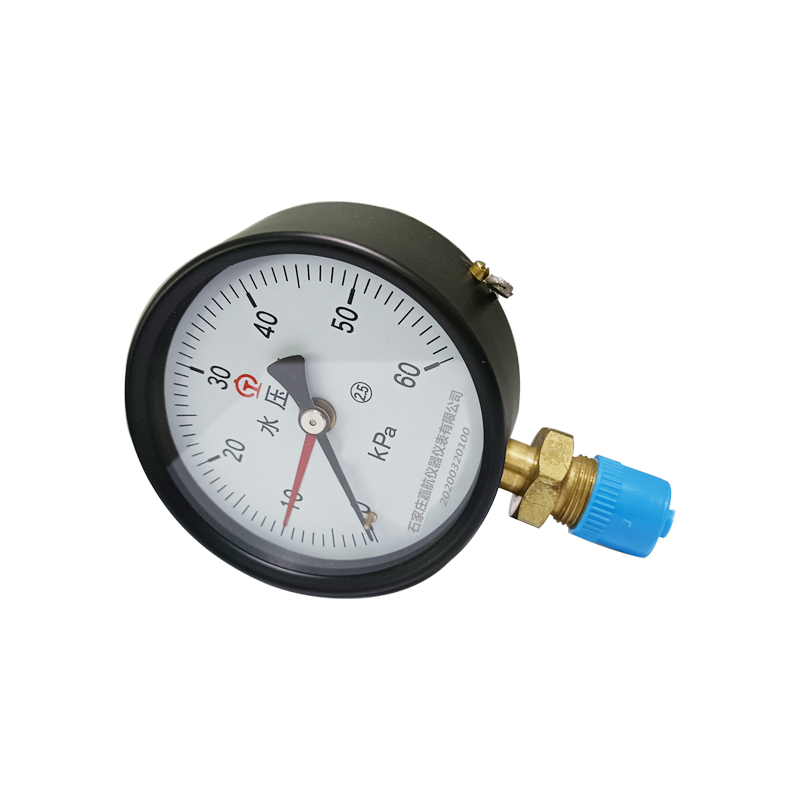
sie . 14, 2024 13:43 Back to list
Understanding the Accuracy Standards of Differential Pressure Gauges in Manufacturing Settings
Understanding Differential Pressure Gauge Accuracy in Manufacturing
In the realm of industrial instrumentation, differential pressure gauges play a crucial role in a variety of applications, from monitoring fluid levels to ensuring system integrity. These devices measure the difference in pressure between two points in a system, providing vital information that aids in the efficient operation of processes in sectors such as oil and gas, water treatment, pharmaceuticals, and HVAC systems. However, the accuracy of these gauges is paramount; even minor discrepancies can lead to significant operational issues, safety hazards, and economic losses.
What is Differential Pressure Measurement?
Differential pressure gauges are designed to measure the pressure difference across two points—often referred to as the high-side and the low-side. This measurement is critical for understanding flow rates, detecting leaks, and maintaining the desired pressure within systems. For instance, in a filtration system, monitoring the differential pressure can indicate when the filter needs to be cleaned or replaced. In HVAC systems, these gauges help ensure that air pressure is balanced, facilitating optimal efficiency.
Importance of Accuracy
The accuracy of differential pressure gauges is a critical factor in their performance. Accuracy is typically defined as the degree to which the measured value corresponds to the true value. Inaccurate measurements can result in a host of problems, including
1. Safety Risks In industries that handle volatile substances, inaccurate pressure readings can lead to dangerous conditions, potentially causing leaks or explosions.
2. Operational Inefficiencies Minor deviations in pressure readings can lead to incorrect operational decisions, resulting in equipment operating outside of its optimal range, thus wasting energy and resources.
3. Quality Control Issues In manufacturing processes, especially in pharmaceuticals and food production, maintaining precise pressure levels is essential to ensure product quality and compliance with regulatory standards.
Factors Affecting Accuracy
Several factors can influence the accuracy of differential pressure gauges, including
differential pressure gauge accuracy factories

- Temperature Variations Changes in temperature can affect the density of fluids, leading to fluctuations in pressure readings. - Installation Errors Improper installation, such as incorrect orientation or alignment, can result in erroneous readings.
- Aging Components Over time, the internal components of pressure gauges can wear out or become less responsive, impacting measurement precision.
- Calibration Regular calibration is necessary to maintain accuracy. Pressure gauges should be calibrated against a known standard to ensure they provide reliable readings.
Manufacturing of Accurate Pressure Gauges
Given the criticality of accuracy in differential pressure gauging, factories that produce these instruments must adhere to rigorous manufacturing standards. These include
- Quality Control Processes Manufacturers implement strict quality assurance protocols during the production process to ensure every gauge meets accuracy specifications.
- Advanced Technologies Many factories utilize state-of-the-art technology in the fabrication and testing of gauges, including digital and electronically compensated gauges which can offer enhanced precision.
- Regular Testing and Calibration Factories often conduct ongoing tests to ensure gauge accuracy, coupled with a commitment to recalibrate devices periodically.
Conclusion
The accuracy of differential pressure gauges is fundamental to the safe and efficient operation of many industrial applications. As sectors continue to evolve with advances in technology, maintaining high standards of accuracy through meticulous manufacturing processes becomes increasingly imperative. As industries strive for greater efficiency and reliability, the importance of precise differential pressure measurements cannot be overstated. By understanding and addressing the factors that affect accuracy, manufacturers can ensure the integrity and performance of their instruments, benefiting both their operations and the industries they serve.
-
High-Precision 5 Valve Manifold Differential Pressure Gauge Suppliers
NewsApr.29,2025
-
High-Precision Diaphragm Vacuum Pressure Gauges Manufacturers & Quotes
NewsApr.29,2025
-
Omega Differential Pressure Gauges High Accuracy & Durability
NewsApr.28,2025
-
Low Pressure Differential Pressure Gauges Precision Solutions & Quotes
NewsApr.28,2025
-
Digital Diaphragm Pressure Gaauge Precision Measurement & OEM Quotes
NewsApr.28,2025
-
Differential Pressure Gauge China Price High-Accuracy & Best Quotes
NewsApr.28,2025
